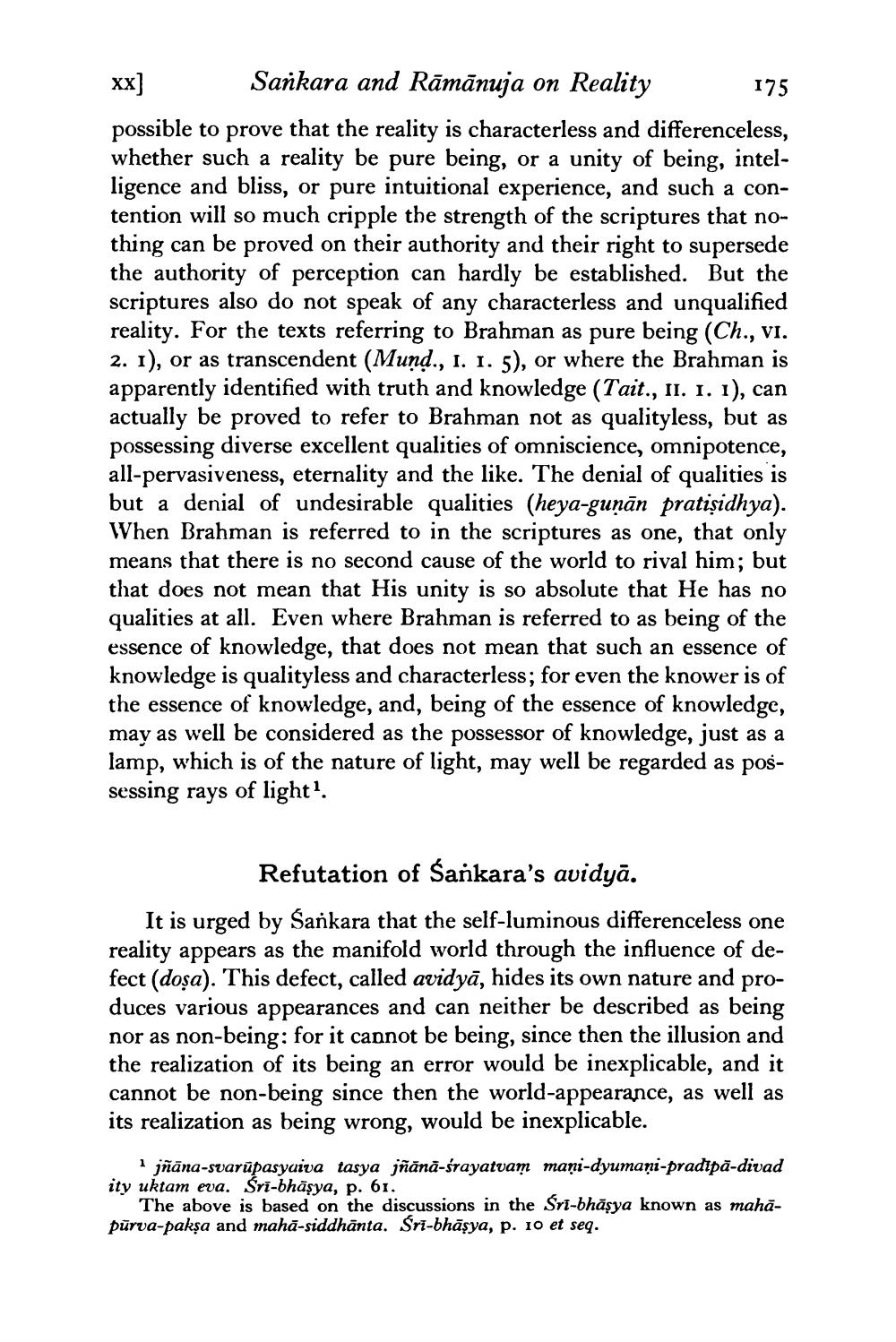________________
XX
Sankara and Rāmānuja on Reality 175 possible to prove that the reality is characterless and differenceless, whether such a reality be pure being, or a unity of being, intelligence and bliss, or pure intuitional experience, and such a contention will so much cripple the strength of the scriptures that nothing can be proved on their authority and their right to supersede the authority of perception can hardly be established. But the scriptures also do not speak of any characterless and unqualified reality. For the texts referring to Brahman as pure being (Ch., VI. 2. 1), or as transcendent (Mund., 1. 1. 5), or where the Brahman is apparently identified with truth and knowledge (Tait., II. 1. I), can actually be proved to refer to Brahman not as qualityless, but as possessing diverse excellent qualities of omniscience, omnipotence, all-pervasiveness, eternality and the like. The denial of qualities is but a denial of undesirable qualities (heya-gunān pratișidhya). When Brahman is referred to in the scriptures as one, that only means that there is no second cause of the world to rival him; but that does not mean that His unity is so absolute that He has no qualities at all. Even where Brahman is referred to as being of the essence of knowledge, that does not mean that such an essence of knowledge is qualityless and characterless; for even the knower is of the essence of knowledge, and, being of the essence of knowledge, may as well be considered as the possessor of knowledge, just as a lamp, which is of the nature of light, may well be regarded as possessing rays of light 1.
Refutation of Sankara's avidyā. It is urged by Sankara that the self-luminous differenceless one reality appears as the manifold world through the influence of defect (dosa). This defect, called avidyā, hides its own nature and produces various appearances and can neither be described as being nor as non-being: for it cannot be being, since then the illusion and the realization of its being an error would be inexplicable, and it cannot be non-being since then the world-appearance, as well as its realization as being wrong, would be inexplicable.
jñāna-svarūpasyuiva tasya jñānā-śrayatvam maņi-dyumaņi-pradipă-divad ity uktam eva. Sri-bhāşya, p. 61.
The above is based on the discussions in the Sri-bhāşya known as mahāpūrva-paksa and mahā-siddhānta. Sri-bhāşya, p. 10 et seq.




